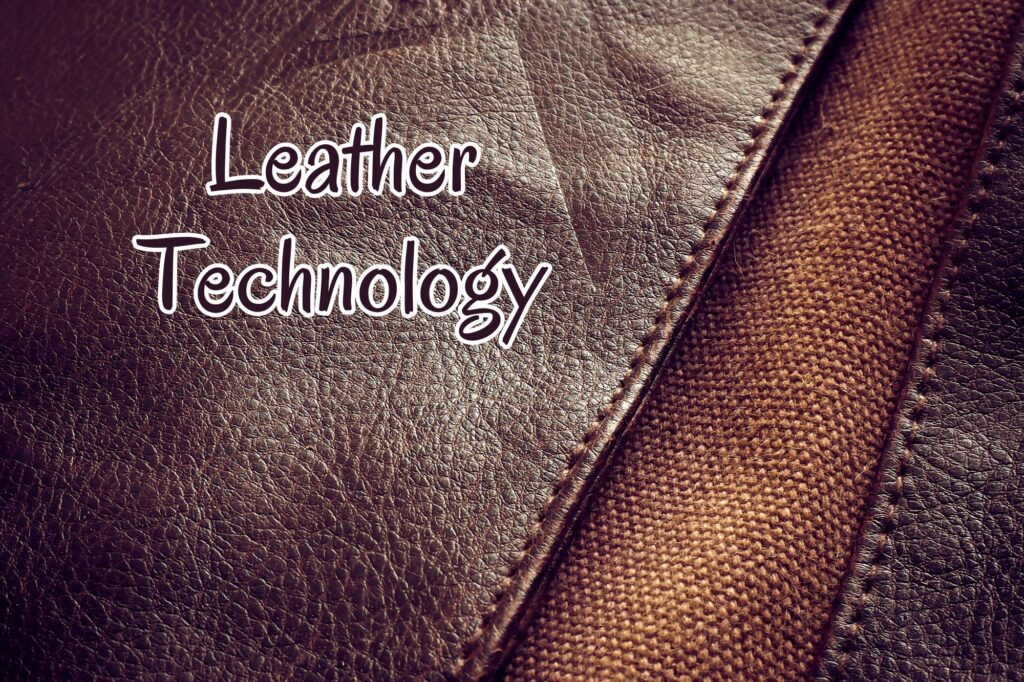Leather technology is a field of study that focuses on the production, use, and care of leather goods. It covers many topics, from the basics of tanning leather to the latest advances in chemical treatments and finishing techniques. Leather technology is an essential skill for anyone who works with leather, from fashion designers to manufacturing workers.
Leather technology requires a thorough understanding of the materials and processes involved in leather production. It involves knowledge of tanning, dyeing, finishing techniques, and the use of chemicals and special tools. Also involves the study of the history and development of leather goods, as well as the impact of modern technology on the industry. With this knowledge, you can create innovative designs that meet the needs of today’s consumers.
Scope and Opportunities in Leather Technology
Leather technology is a growing field with many career opportunities for those interested in the design, manufacturing, marketing, and tanning of leather goods. The scope of leather technology encompasses a variety of tasks, including
- the design of garments, such as jackets, pants, and skirts;
- the cutting and sewing of leather material; the tanning of hides;
- the production of leather goods; and
- the marketing and promotion of leather products.
Leather professionals may also be involved in the development of new products and the implementation of new technologies. Designing leather garments requires a deep understanding of the material and an eye for detail. Leather designers must be able to create stylish and practical garments. They must also be knowledgeable about the different types of leather, including cowhide, calfskin, and pigskin, and be able to select the best leather for a particular garment.
Leather professionals are also responsible for the cutting and sewing of leather garments. This requires specialized skills and an understanding of the various techniques used to cut and stitch leather. Additionally, leather professionals must understand the different types of leather and be able to select the most appropriate type for a given project. Tanning hides are an important part of the leather industry. Professionals must be knowledgeable about the different tanning processes and the chemicals used in the tanning process. They must also be able to identify potential issues with the hides and properly prepare and treat them to ensure the best possible quality.
Production of Leather Goods
The production of leather goods requires a high level of expertise. Professionals must be able to select the right equipment and materials and understand the different manufacturing processes. Additionally, they must be able to identify potential issues with the leather goods and make the necessary adjustments to ensure the best possible quality. Finally, leather professionals are often responsible for marketing and promoting leather products. They must be knowledgeable about the latest trends in the industry and be able to create effective marketing campaigns that will attract new customers and generate sales.
Leather Technology Courses in India
The courses offered in this field include:
- B.Tech Leather Technology
- M. Tech in Leather Technology
- Bachelor of Design (B.Des.) Leather Design
- Diploma in Leather Goods and Accessories Design (DLGAD)
- Diploma in Leather Technology
- Certificate Course in Shoe Designing and Pattern Cutting
- Certificate Course in Boot, Shoe & Leather Goods Manufacture
These courses provide students with the necessary skills and knowledge to pursue a successful career in leather technology.
Institutions for Studying Leather Technology Courses in India
As the demand for leather goods continues to increase, so does the need for individuals with the right knowledge to produce the highest quality leather products. Fortunately, several institutions specialize in leather technology and offer courses to equip students with the skills and knowledge to succeed in the industry.
- Government Leather Institute
- A.P. Govt. Institute of Leather Technology
- Government College of Engineering and Leather Technology (GCELT)
The institutes offer a range of courses, from basic leather technology to advanced courses in leather design, manufacturing, and marketing. Students are taught various skills such as pattern making, sewing, dyeing and finishing, as well as design and branding. These are just a few of the many institutions worldwide that offer leather technology courses.
Benefits of Pursuing a Career in Leather Technology
Leather technology is becoming increasingly important today, and there is a growing demand for skilled professionals in this field. Pursuing a career in leather technology can be very rewarding, with several benefits. Here are just a few of the many advantages of pursuing a career in leather technology:
1. High earning potential:
Professionals in the leather technology field can earn a high salary, with experienced professionals sometimes earning up to six figures.
2. Job security:
As leather technology is becoming more important and in demand, there is a good chance that those who pursue a career in the field will have a secure job.
3. Opportunity for advancement:
Leather technology offers a wide range of opportunities for advancement and career progression.
4. A chance to be creative:
Working with leather technology allows professionals to be creative and develop innovative designs.
5. A chance to make a real impact:
Working in leather technology can be a rewarding experience as professionals can make a real difference.
With the right training and experience, you can become a skilled leather technologist and make a career out of it. Not only will you be able to work in various industries and positions, but you will also be able to help design, develop, and create products that make a difference. The sky is the limit regarding the potential of leather technology. So what are you waiting for? Get started today and make your dreams come true.



